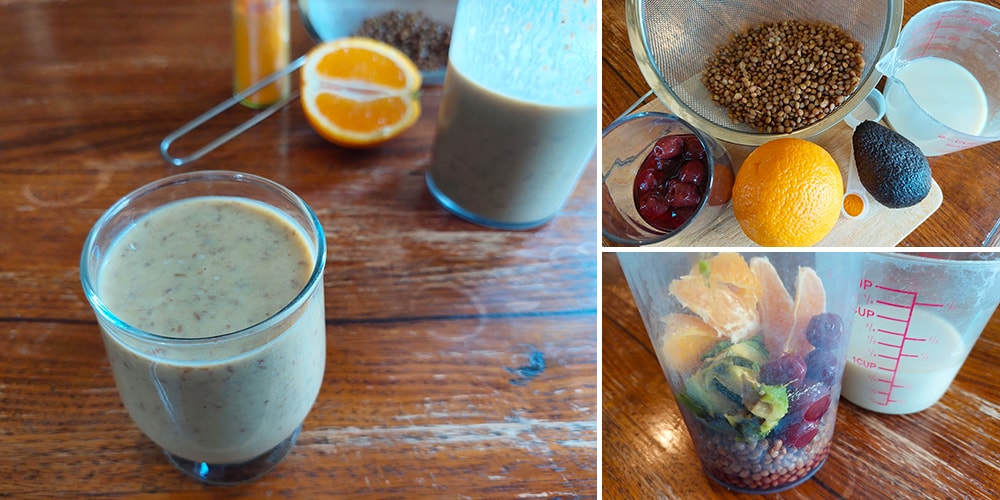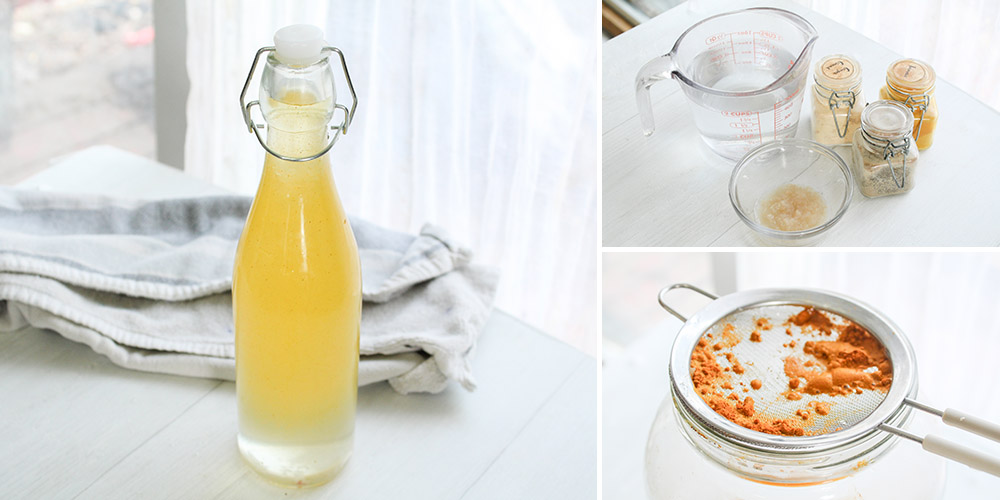
The 7 Best Herbs for Restless Leg Syndrome That Actually Work
Restless Leg Syndrome (RLS) is more than just an occasional inconvenience—it’s a persistent, frustrating condition that can ruin sleep, comfort, and overall quality of life. If you’ve struggled with the constant urge to move your legs, accompanied by uncomfortable sensations like tingling, aching, or twitching, you know how desperately relief is needed.
Fortunately, natural herbal remedies have emerged as reliable solutions to ease symptoms without side effects common with prescription medication. Let’s explore the science behind these powerful herbs and identify the best ones that genuinely help relieve Restless Leg Syndrome symptoms.
The Science Behind Herbs For Restless Leg Syndrome
While herbs have been used traditionally for centuries, modern science has started uncovering exactly how these remedies work on conditions like RLS. Most herbs beneficial for Restless Leg Syndrome possess sedative, anti-inflammatory, or muscle-relaxing properties. These actions help calm overactive nerve impulses and ease muscle spasms, reducing the uncomfortable symptoms associated with RLS.
Research indicates RLS symptoms might be linked to imbalances in neurotransmitters like dopamine, or deficiencies in minerals such as magnesium and iron. Many herbs contain active compounds that naturally regulate neurotransmitter function, enhance mineral absorption, or gently calm an overstimulated nervous system, addressing the root causes of discomfort rather than simply masking symptoms.
For example, valerian root and passionflower have shown significant anxiolytic (anti-anxiety) and calming effects in numerous clinical studies. Their sedative qualities not only ease muscle tension but also facilitate deeper, more restful sleep. Similarly, adaptogenic herbs such as ashwagandha help regulate cortisol and adrenaline production, reducing systemic stress that often aggravates RLS symptoms.
Further studies have highlighted the anti-inflammatory and antioxidant effects of herbs like lavender, chamomile, and St. John’s Wort. Chronic inflammation and oxidative stress have been implicated in worsening RLS symptoms, making herbs with potent anti-inflammatory properties particularly beneficial. By tackling inflammation and calming nerve endings, these herbs effectively reduce twitching, tingling, and restless sensations.
1. Valerian Root
 Valerian root has long been praised as a natural sedative and sleep aid. It contains compounds like valerenic acid, which gently calm the nervous system, making it easier to relax muscles and fall asleep.
Valerian root has long been praised as a natural sedative and sleep aid. It contains compounds like valerenic acid, which gently calm the nervous system, making it easier to relax muscles and fall asleep.
Valerian is particularly useful for RLS because it reduces muscle spasms and nerve hyperactivity. Clinical trials have demonstrated that valerian significantly shortens sleep latency, meaning people fall asleep faster and experience deeper rest. Regular use helps establish a healthy sleep pattern, critical for those struggling with chronic restless legs.
Beyond its sleep-inducing properties, valerian root also contains antioxidants that reduce oxidative stress, potentially addressing an underlying cause of nerve irritability and inflammation common in RLS sufferers. Many individuals report consistent improvement in their symptoms with ongoing use, particularly when taken nightly as part of a routine.
How to use:
Prepare valerian tea by steeping one teaspoon of dried valerian root in boiling water for 10-15 minutes before bed. Capsules and tinctures are also readily available.
2. Passionflower
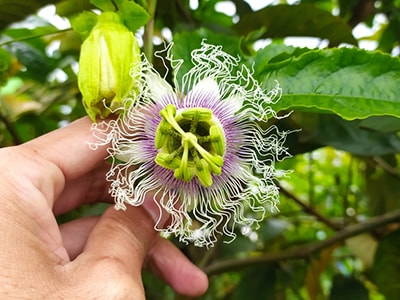 Passionflower is a soothing herb widely used to calm restlessness, anxiety, and insomnia. It directly targets the nervous system, reducing involuntary muscle movements associated with restless legs.
Passionflower is a soothing herb widely used to calm restlessness, anxiety, and insomnia. It directly targets the nervous system, reducing involuntary muscle movements associated with restless legs.
Passionflower contains flavonoids and alkaloids that act as natural relaxants, soothing muscle tension and nervous system agitation. Clinical studies have found passionflower as effective as some prescription medications in reducing anxiety symptoms, making it a valuable alternative or adjunct treatment for RLS.
Furthermore, passionflower enhances levels of the neurotransmitter GABA (gamma-aminobutyric acid), which naturally calms nerve activity in the brain. With regular use, passionflower tea or tinctures provide sustainable relief from nighttime muscle twitches and restlessness, promoting an uninterrupted and restful sleep cycle.
How to use:
Drink passionflower tea in the evening, or use tinctures to achieve deeper relaxation. It’s gentle enough for regular nightly use.
3. Lavender
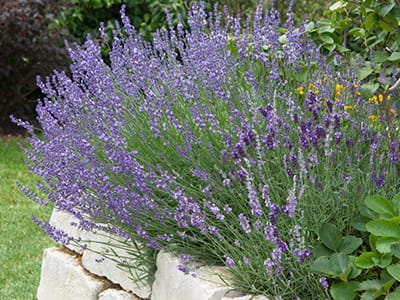 Lavender is famed for its calming aroma, but its healing effects go deeper. Lavender gently soothes nerve inflammation, promoting muscle relaxation and restful sleep, making it an ideal herb for RLS sufferers.
Lavender is famed for its calming aroma, but its healing effects go deeper. Lavender gently soothes nerve inflammation, promoting muscle relaxation and restful sleep, making it an ideal herb for RLS sufferers.
Clinical studies have highlighted lavender’s ability to reduce stress hormones like cortisol and alleviate inflammation-related discomfort. The herb’s analgesic properties also relieve mild nerve pain, a common complaint among RLS patients.
Using lavender before bedtime can create a calming ritual, significantly improving sleep quality. In aromatherapy, lavender’s pleasant scent is shown to promote alpha waves in the brain, inducing relaxation and helping ease symptoms of anxiety, muscle tension, and restlessness associated with RLS.
How to use:
Use lavender essential oil diluted in a carrier oil (like almond or coconut oil) and massage it into your legs before bedtime. Alternatively, enjoy lavender tea to soothe from the inside out.
4. Chamomile
 Chamomile is a trusted herb for soothing stress, anxiety, and muscle tension. Its relaxing properties effectively ease the muscle spasms and discomfort common with RLS, especially at night.
Chamomile is a trusted herb for soothing stress, anxiety, and muscle tension. Its relaxing properties effectively ease the muscle spasms and discomfort common with RLS, especially at night.
Rich in antioxidants and anti-inflammatory compounds like apigenin, chamomile reduces the inflammation contributing to restless sensations. Research suggests chamomile tea also enhances overall sleep quality, particularly by reducing nighttime awakenings.
Regularly drinking chamomile tea has cumulative benefits. Over time, its calming effects grow stronger, helping to normalize disrupted sleep patterns common in chronic restless leg sufferers. Additionally, chamomile gently calms digestion and reduces systemic inflammation, promoting holistic health benefits beyond immediate RLS relief.
How to use:
Brew chamomile tea nightly, allowing its mild yet effective sedative effects to ease you gently into restful sleep.
5. Skullcap
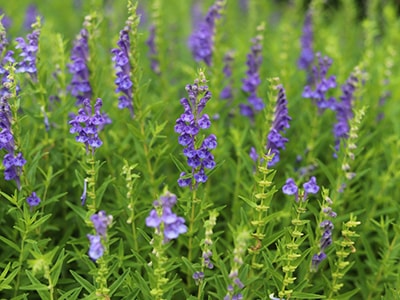 Skullcap, particularly American Skullcap (Scutellaria lateriflora), has remarkable muscle-relaxing and sedative qualities. It reduces nerve irritability, calms involuntary muscle spasms, and relieves overall restlessness.
Skullcap, particularly American Skullcap (Scutellaria lateriflora), has remarkable muscle-relaxing and sedative qualities. It reduces nerve irritability, calms involuntary muscle spasms, and relieves overall restlessness.
Skullcap works by regulating nervous system excitability, easing the hyperactivity of nerve impulses. Studies suggest skullcap effectively reduces anxiety-related symptoms and muscle twitching, making it especially useful for those whose RLS symptoms intensify during stress.
Long-term use of skullcap can promote better overall nervous system health, reducing susceptibility to flare-ups. Its calming properties also enhance sleep duration and depth, essential for sufferers of chronic restless leg syndrome who struggle with sleep disruption.
How to use:
Take skullcap tinctures or capsules in the evening. Start with lower doses and adjust as needed.
6. Ashwagandha
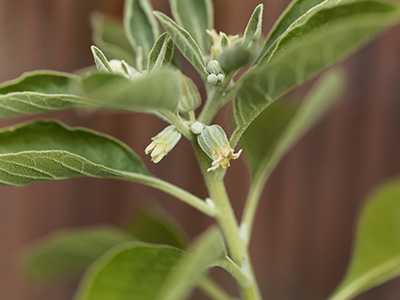 An adaptogen from Ayurveda, Ashwagandha works by balancing the nervous system and reducing chronic inflammation, both of which significantly ease restless leg symptoms. It also combats stress, improving overall sleep quality.
An adaptogen from Ayurveda, Ashwagandha works by balancing the nervous system and reducing chronic inflammation, both of which significantly ease restless leg symptoms. It also combats stress, improving overall sleep quality.
Clinical trials indicate Ashwagandha effectively reduces cortisol levels, the stress hormone closely linked to inflammation and restless sleep. Its anti-inflammatory and antioxidant effects help ease muscle spasms and soothe overactive nerve endings.
Regular use of Ashwagandha may also benefit RLS sufferers indirectly by alleviating anxiety, enhancing mood, and promoting overall relaxation, making sleep disturbances and restless sensations significantly more manageable.
How to use:
Ashwagandha powder mixed into warm milk or herbal tea before bed is a traditional preparation. Capsules are also effective and convenient.
7. St. John’s Wort
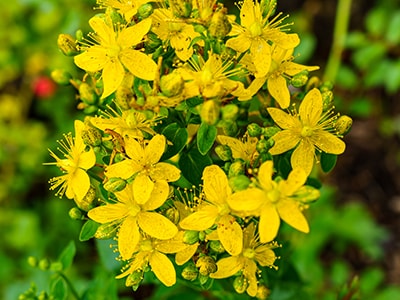 St. John’s Wort is commonly used for its mood-enhancing qualities, but its calming influence on nerve endings makes it valuable for restless legs. It reduces nerve pain, tingling, and twitching sensations significantly.
St. John’s Wort is commonly used for its mood-enhancing qualities, but its calming influence on nerve endings makes it valuable for restless legs. It reduces nerve pain, tingling, and twitching sensations significantly.
This herb is well-known for improving neurotransmitter balance, notably serotonin and dopamine—both critical in managing RLS symptoms. By addressing underlying neurotransmitter deficiencies, St. John’s Wort provides relief not just superficially, but at a foundational level.
Additionally, St. John’s Wort possesses notable anti-inflammatory properties, effectively reducing inflammation of nerve endings associated with restless leg discomfort. Consistent use can yield substantial, lasting relief, improving both comfort and sleep quality.
How to use:
Take St. John’s Wort as a tea or tincture, or in standardized capsules following dosage recommendations on packaging.
You’ve just seen what each of these calming plants can do on their own — valerian to quiet spasms, passionflower to stop the twitching, chamomile and lavender to soften tension, ashwagandha to lower the stress that triggers it all.
Now imagine what happens when you combine them. Precisely. In one remedy. No guesswork. No extra prep.
Nicole Apelian’s Anxiety & Stress Tincture brings together many of the same herbs from this article — valerian, passionflower, lemon balm, reishi, and more — into one concentrated formula designed to:
✅ Relax nerves and muscles
✅ Calm twitching and restlessness
✅ Lower inflammation and cortisol
✅ Support deeper, longer sleep
If your RLS is worse when you’re stressed, overstimulated, or lying down with nothing to distract your mind — this is the one you want to try.
Because a calm nervous system is a quiet one. And a quiet one finally lets you rest.
Final Thoughts
Restless Leg Syndrome doesn’t have to rule your nights or rob your peace of mind. The herbs highlighted above offer proven, natural relief, helping you regain restful sleep and comfort without dependence on harsh pharmaceuticals.
Try integrating these herbs into your evening routine, and experience firsthand the soothing, healing power nature has to offer.
You May Also Like:
Heavy, Inflamed Legs? Drink This!
How to Recognize a Heart Attack and What to Do Next (Video)
DIY Magnesium Rub for Leg Cramps


